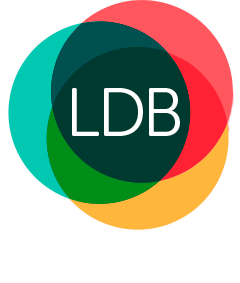Tax Implications of Christmas Gifts for Staff and Clients: Navigating Deductions and FBT
November 17, 2023
Christmas gifts for staff and clients – tax issues
It is customary at this time of year, as we head towards the holiday season, for a business to provide its staff, and perhaps even some key clients and suppliers, with a gift. The gift could be anything. Some common examples are a bottle of wine, a voucher to spend at Myer or David Jones, or a Christmas hamper.
From a layman’s perspective, one could be forgiven for assuming that the tax consequences of a business buying a gift for a client or staff member are relatively straight forward… claim a tax deduction, claim GST input tax credits…. and then head off to the work Christmas Party to celebrate what has been a challenging but hopefully successful year.
Unfortunately, things are never so simple when it comes to the Australian taxation system!
Did you know that depending on the type of gift, its cost and who it is provided to (client or staff member) it may not give rise to a tax deduction, GST input tax credits may not be claimable, and it might even give rise to a liability for Fringe Benefits Tax (FBT).
Let’s now untangle this web.
Income Tax
From the perspective of claiming a tax deduction, a gift will not be deductible if it is “entertainment” that is not covered by an exception.
“Entertainment” is broadly defined as entertainment by way of “food and drink” and entertainment by way of “recreation”.
A classic example of entertainment by way of recreation would be tickets to attend a music concert or a sporting event. So, what about that bottle of wine, that Christmas hamper… sounds like entertainment by way of food and drink and therefore potentially non-deductible?
This might come as a bit of a surprise, but the ATO takes the view that where there is no immediacy of consumption when a bottle of alcohol or a Christmas hamper is provided to a recipient (that is, the recipient takes the bottle/hamper home and consumes it sometime later), it is not considered to be entertainment. This view is confirmed by ATO in Taxation Determination TD 94/55.
In contrast, a hot meal at a restaurant or a glass of champagne at a bar, are examples of entertainment by way of food or drink, as there is clearly an immediacy of consumption. Where a gift does constitute “entertainment”, such as tickets to a music concert or sporting event, it will not be tax deductible, unless an exception applies, such as being subject to FBT.
FBT
Gifts that are provided to staff members and their relatives (but not to clients and suppliers) can give rise to a liability for FBT, unless they are covered by an exemption from FBT.
One such exemption is where the benefit is a minor benefit (refer to section 58P of the FBT Act). Broadly, where the benefit costs the provider less than $300 and is provided on an infrequent and irregular basis to an employee throughout the course of the FBT year (the year ending 31 March), it can be exempt from FBT as a minor benefit.
GST
If a benefit is “entertainment” that is not tax deductible, GST input tax credits cannot be claimed in relation to the cost of benefit.
So, what is the “ideal” gift from a tax perspective?
In brief, to ensure the gift is tax deductible and should not give rise to any FBT liability, make sure the gift is not “entertainment”.
To access the minor benefit exemption where the gift is provided to a staff member or their relative, ensure the gift costs less than $300 and that it is provided on an infrequent and irregular basis. Thankfully, that a gift may be provided once a year, every year, at or about the same time, to a staff member does not give rise to any concerns about the “regularity” of the benefit being provided.
This still leaves many options available to a business to provide a gift that will be gratefully received by a staff member or client, such as: a bottle of wine, Christmas hamper, or voucher to be spent at a retailer/department store.
What about that work Christmas Party?
That is a different story, requiring consideration as to how the business values its “meal entertainment” for FBT purposes. Just to complicate things a little further, there are three different methods to determine the amount of meal entertainment that may be subject to FBT.
Again, there are a plethora of income tax, FBT and GST matters to consider.
More complications arise where that Christmas Party is provided in the setting of the provision of other “entertainment” – such an afternoon of lawn bowls or a river boat cruise, to provide two common examples.
Need assistance?
LDB Group and its tax experts are well placed to advise businesses on all the income tax, GST and FBT issues associated with the provision of benefits, such as gifts and meal entertainment, to their staff and other third parties, such as clients and suppliers.
Should you want to have a discussion with one of our tax experts about these issues, please contact LDB on (03) 9875 2900.

